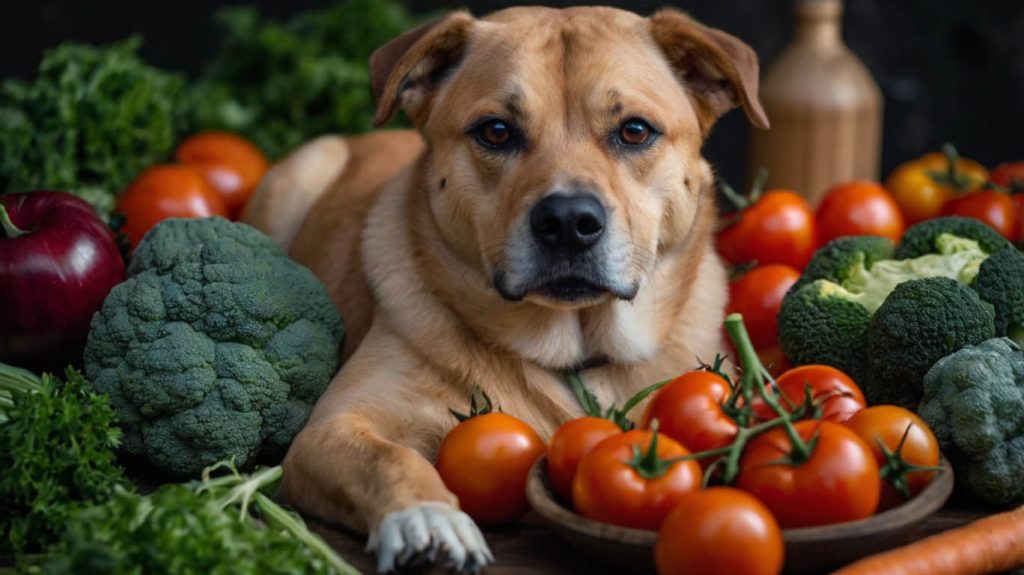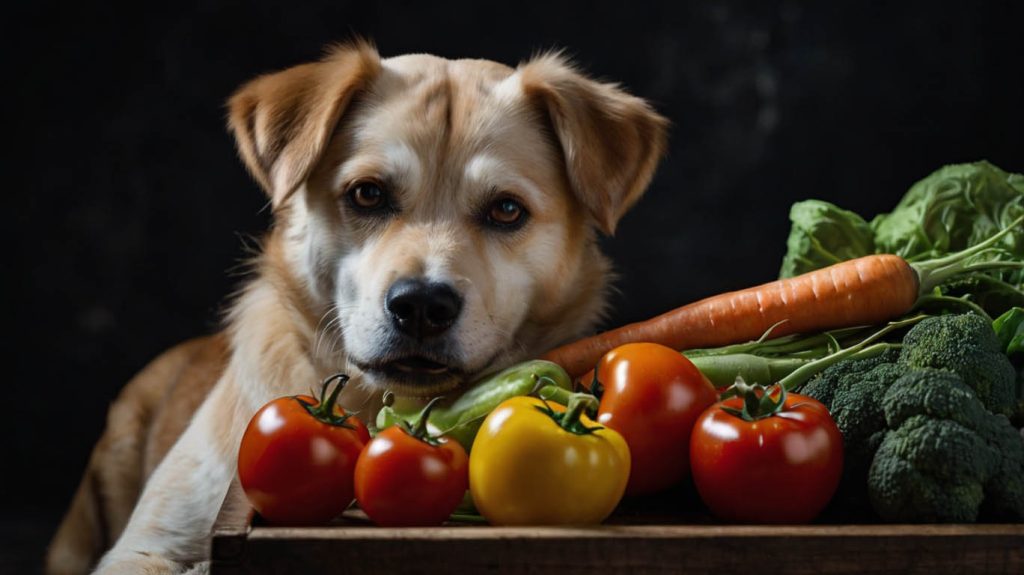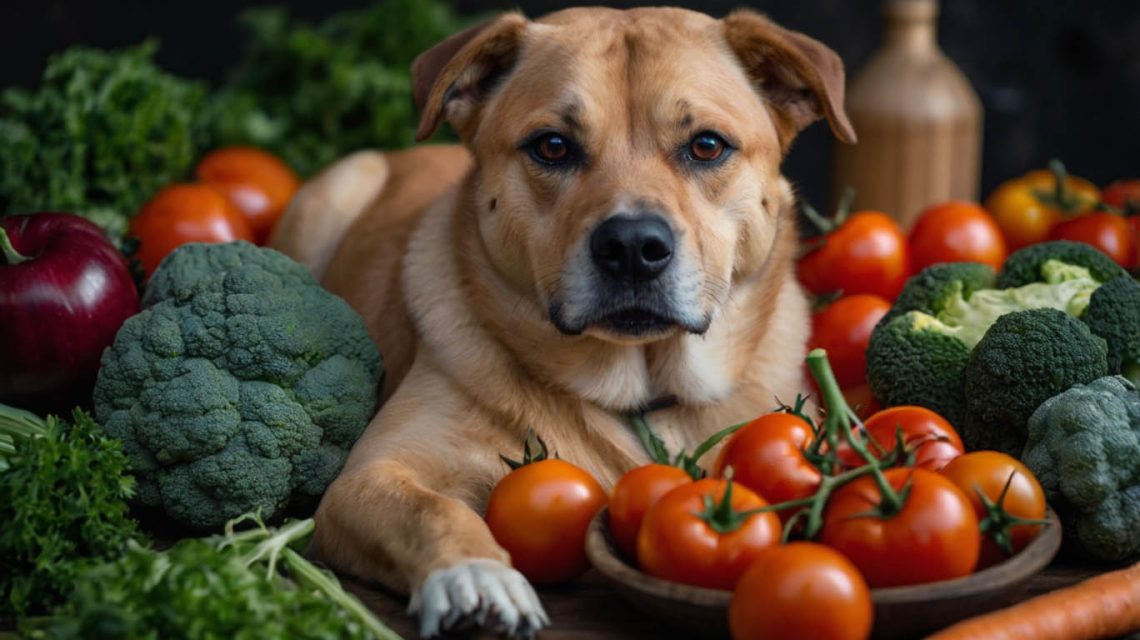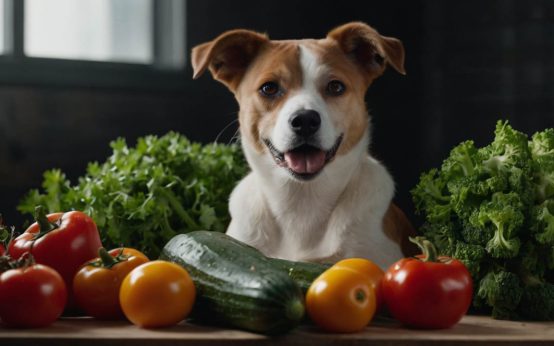What Vegetables Are Good for Dogs: The Ultimate Guide for Pet Parents
Laura looked at her beloved Golden Retriever, Buster, with a mix of love and concern. Buster had been packing on a few extra pounds, and the vet had gently suggested cutting back on his high-calorie store-bought biscuits. Laura wanted to give him healthy, delicious treats but felt lost. She found herself staring into her refrigerator, asking a question many loving pet owners face: what vegetables are good for dogs?
This question is a fantastic one. As we strive to live healthier lives, it’s natural to want the same for our canine companions. Vegetables can be a wonderful, low-calorie, and nutrient-packed alternative to processed treats. However, the dog-safe food world can be confusing, and what’s healthy for us isn’t always safe for them.
Consequently, this definitive guide is here to be your go-to resource. We will explore the benefits of veggies, provide a clear, vet-reviewed list of safe options, highlight the dangerous ones you must avoid, and teach you how to prepare them. Therefore, you can confidently and safely answer the question, “what vegetables are good for dogs?”
The Benefits: Why You Should Ask, “What Vegetables Are Good for Dogs?”
Before we dive into the list, it’s important to understand why vegetables can be a fantastic addition to your dog’s diet (in moderation).
- Low-Calorie, High-Fiber: Most dog-safe vegetables are low in calories and fat but high in fiber. This makes them perfect for weight management, helping your dog feel full without adding extra pounds. This was Laura’s primary motivation for Buster.
- Rich in Vitamins and Minerals: Vegetables are packed with vitamins like A, C, and K, as well as essential minerals and antioxidants that support your dog’s immune system and overall health.
- Hydration Boost: Many vegetables, like cucumbers, have high water content, which can help keep your dog hydrated, especially on warm days.
- Mental Enrichment: The different textures and crunches of vegetables can provide a fun and engaging snacking experience.
A Crucial Rule: Remember the 90/10 rule. Treats, including vegetables, should make up no more than 10% of your dog’s daily caloric intake. Their primary nutrition must come from their complete and balanced dog food.

The Vet-Approved List: What Vegetables Are Good for Dogs?
This is the heart of the matter. Here is a list of safe, healthy, and dog-approved vegetables you can start sharing with your pup today.
Carrots: The Classic Crunchy Treat Good for Dogs
Carrots are often the first answer to “what vegetables are good for dogs,” and for good reason. They are packed with beta-carotene, which converts to Vitamin A, supporting vision, skin, and immune health. Furthermore, their crunchy texture is excellent for helping to clean your dog’s teeth and satisfy their urge to chew. You can serve them raw in large pieces (to prevent choking) or cooked.
Green Beans: A Low-Calorie Veggie Good for Dogs
Plain green beans (canned with no salt, steamed, or raw) are a fantastic, low-calorie treat. They are full of fiber, which aids in digestion, as well as essential vitamins like K and C. Because they are so low in calories, they are an excellent choice for dogs on a weight-loss plan.
Broccoli: A Nutrient-Packed Vegetable Good for Dogs (in Moderation)
Broccoli is a nutritional powerhouse, loaded with Vitamin C and fiber. You can offer your dog small, cooked, or raw florets as a treat. However, broccoli should always be given in moderation. It contains isothiocyanates, which can cause mild to moderate gastric irritation if a dog eats too much. Stick to small quantities.
Sweet Potatoes: A Fiber-Rich Choice Good for Dogs
Cooked sweet potatoes are a wonderfully healthy treat. They are a great source of dietary fiber, which is fantastic for digestive health, and they are packed with vitamins A, B6, and C. Crucially, you must always serve sweet potatoes cooked (steamed or baked) and plain. Raw sweet potato is difficult for dogs to digest and can cause stomach upset.
Cucumbers: The Hydrating Snack Good for Dogs
Cucumbers are an amazing, low-calorie snack, especially for overweight dogs or during hot weather. They are over 95% water and contain vitamins K and C. Their crunchy texture makes them a refreshing treat that won’t contribute to weight gain.
Pumpkin: The Digestive Aid Good for Dogs
When asking “what vegetables are good for dogs” with sensitive stomachs, pumpkin is the star. 100% plain, canned pumpkin (NOT pumpkin pie filling) is a miracle worker for digestive health. Its high fiber content can help with both diarrhea (by absorbing water) and constipation (by adding bulk). A spoonful mixed with their food is a fantastic supplement.

The “Do Not Feed” List: What Vegetables Are Harmful to Dogs?
This section is just as important as the safe list. Never feed your dog the following vegetables, as they can be toxic.
Onions, Garlic, and Chives: Toxic Vegetables for Dogs
This entire family of plants (the Allium family) is toxic to dogs in all forms—raw, cooked, powdered, or dehydrated. They contain compounds that damage a dog’s red blood cells, which can lead to life-threatening anemia.
Unripe Tomatoes and Potato Plants
While the ripe red flesh of a tomato is generally safe, the green parts of the plant (stems, leaves) contain a substance called solanine, which is toxic. Similarly, raw potatoes (especially if they are green) contain this substance. Always keep your dog away from tomato and potato plants in the garden.
Mushrooms (Wild)
While plain, store-bought mushrooms may be safe, it’s best to avoid them altogether. Wild mushrooms can be extremely poisonous, and it can be difficult to distinguish safe ones from toxic ones. The risk is simply too high.
Rhubarb
Rhubarb leaves contain oxalates, which can cause problems with a dog’s nervous system, kidneys, and digestive tract.
How to Prepare Vegetables for Your Dog Safely
Preparation is key to ensuring that vegetables are a safe and healthy treat.
To Cook or Not to Cook?
While many vegetables can be served raw (like carrots and cucumbers), cooking them (by steaming or boiling) breaks down the plant’s cell walls. This makes the nutrients inside much easier for your dog’s digestive system to absorb.
Cut into Bite-Sized Pieces
Always chop vegetables into appropriate, bite-sized pieces for your dog’s size to prevent choking. For large, crunchy veggies like carrots, you can give a whole piece for them to chew on under supervision.
Keep It Plain and Simple: No Seasonings!
This is a golden rule. Always serve vegetables plain. Do not add salt, butter, oil, garlic powder, onion powder, or any other seasonings you would use for yourself. These can be harmful to your dog.
A Case Study Resolved: How Laura and Buster Found Veggie Bliss
Let’s return to Laura and her slightly overweight pup, Buster. After her vet visit and some research, Laura started a new treat routine. She replaced his high-calorie biscuits with baby carrots for a crunchy snack and added a spoonful of plain, canned pumpkin to his dinner to help him feel full. On hot days, she would give him chilled cucumber slices.
The result was fantastic. Buster loved his new, flavorful treats. Over the next few months, combined with his regular exercise, he slimmed down to a healthy weight. Laura felt wonderful knowing she had found the perfect answer to “what vegetables are good for dogs” and was providing him with treats that were both delicious and beneficial.
The Final Verdict: A Healthy Addition with an Asterisk
So, what vegetables are good for dogs? Many! From carrots and green beans to pumpkin and cucumbers, these natural foods can be a wonderful, healthy part of your dog’s treat routine. The key is to choose safe options, prepare them correctly, and always offer them in moderation.
Your dog’s health is in your hands. Always consult with your veterinarian before making significant changes to their diet. What are your dog’s favorite healthy, crunchy veggies? Share them in the comments below!



 What Vegetables Are Good for Dogs: Complete Guide
What Vegetables Are Good for Dogs: Complete Guide